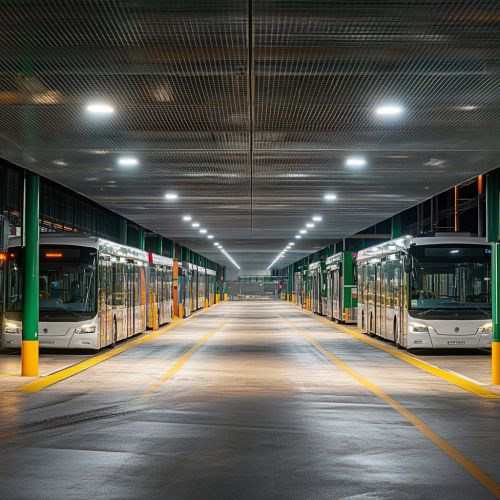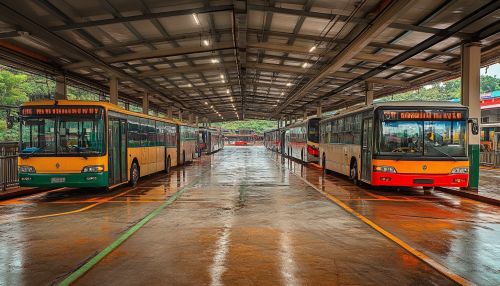Boynton v. Virginia
Background
Boynton v. Virginia (364 U.S. 454) is a landmark United States Supreme Court case decided in 1960 that significantly impacted the civil rights movement. The case arose from an incident involving an African American law student, Bruce Boynton, who was arrested for trespassing after he refused to leave a whites-only section of a bus terminal restaurant in Richmond, Virginia. The Supreme Court's decision in this case extended the reach of the Interstate Commerce Act to prohibit racial segregation in public transportation facilities.
Case History
Incident and Arrest
On December 20, 1958, Bruce Boynton, a law student at Howard University, was traveling from Washington, D.C., to Montgomery, Alabama, by bus. During a scheduled stop in Richmond, Virginia, Boynton entered the restaurant of the bus terminal, which was segregated by race. He sat in the section designated for white customers and ordered a sandwich and tea. When he refused to move to the section designated for African Americans, he was arrested and charged with trespassing.
Lower Court Proceedings
Boynton was convicted of trespassing in the Richmond Municipal Court. He appealed the conviction to the Virginia Supreme Court of Appeals, which upheld the lower court's decision. Boynton then appealed to the United States Supreme Court, arguing that his arrest and conviction violated the Interstate Commerce Act and the Equal Protection Clause of the Fourteenth Amendment.
Supreme Court Decision
Arguments
Boynton's legal team, led by Thurgood Marshall, argued that the Interstate Commerce Act prohibited racial segregation in interstate transportation facilities. They contended that the bus terminal restaurant was an integral part of the interstate transportation system and, therefore, subject to federal regulation. The state of Virginia argued that the restaurant was a private business and not subject to the Interstate Commerce Act.
Majority Opinion
On December 5, 1960, the Supreme Court delivered a 7-2 decision in favor of Boynton. Justice Hugo Black wrote the majority opinion, holding that the bus terminal restaurant was indeed an integral part of the interstate transportation system. The Court ruled that the Interstate Commerce Act prohibited racial segregation in such facilities, and therefore, Boynton's arrest and conviction were unconstitutional.
Justice Black's opinion emphasized that the Interstate Commerce Act's prohibition of discrimination applied to all facilities that were part of the interstate transportation process. This included waiting rooms, restrooms, and restaurants in bus terminals. The decision effectively extended the reach of the Interstate Commerce Act to cover all aspects of interstate travel, ensuring that African Americans could not be discriminated against in these facilities.
Dissenting Opinion
Justices Tom C. Clark and Charles Evans Whittaker dissented. Justice Clark argued that the restaurant was a private business and not subject to the Interstate Commerce Act. He believed that the majority's decision represented an overreach of federal authority into state-regulated private businesses.
Impact and Legacy
The Boynton v. Virginia decision had far-reaching implications for the civil rights movement. It provided a legal basis for challenging segregation in all aspects of interstate travel. The ruling was a significant victory for civil rights activists and helped to pave the way for subsequent actions aimed at ending racial segregation in public facilities.
Freedom Rides
The decision directly inspired the Freedom Rides of 1961, organized by the Congress of Racial Equality (CORE) and the Student Nonviolent Coordinating Committee (SNCC). The Freedom Riders, both black and white, traveled together on interstate buses into the segregated southern United States to test the enforcement of the Boynton decision. They faced violent opposition and arrests, drawing national attention to the civil rights struggle and prompting federal intervention.
Legal Precedents
Boynton v. Virginia set a precedent for the interpretation of the Interstate Commerce Act and the application of federal anti-discrimination laws to interstate transportation facilities. It reinforced the principle that federal law supersedes state laws that permit racial segregation and discrimination.
See Also
- Interstate Commerce Act
- Fourteenth Amendment to the United States Constitution
- Freedom Riders
- Civil Rights Movement
- Thurgood Marshall


References
1. Boynton v. Virginia, 364 U.S. 454 (1960). 2. "The Freedom Rides." Congress of Racial Equality. 3. "Civil Rights Movement." Encyclopedia Britannica. 4. "Interstate Commerce Act." Legal Information Institute, Cornell Law School. 5. "Fourteenth Amendment." National Constitution Center.
